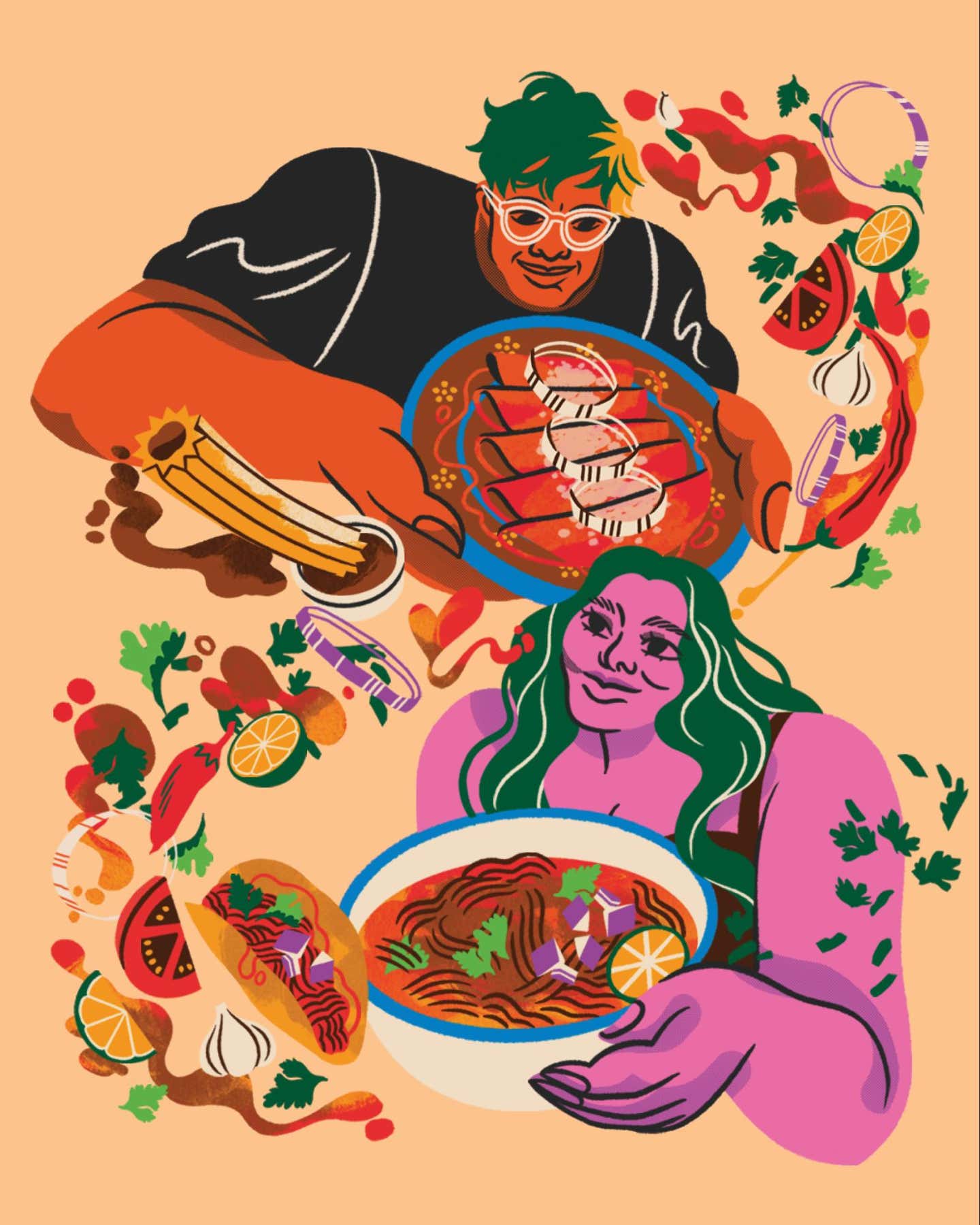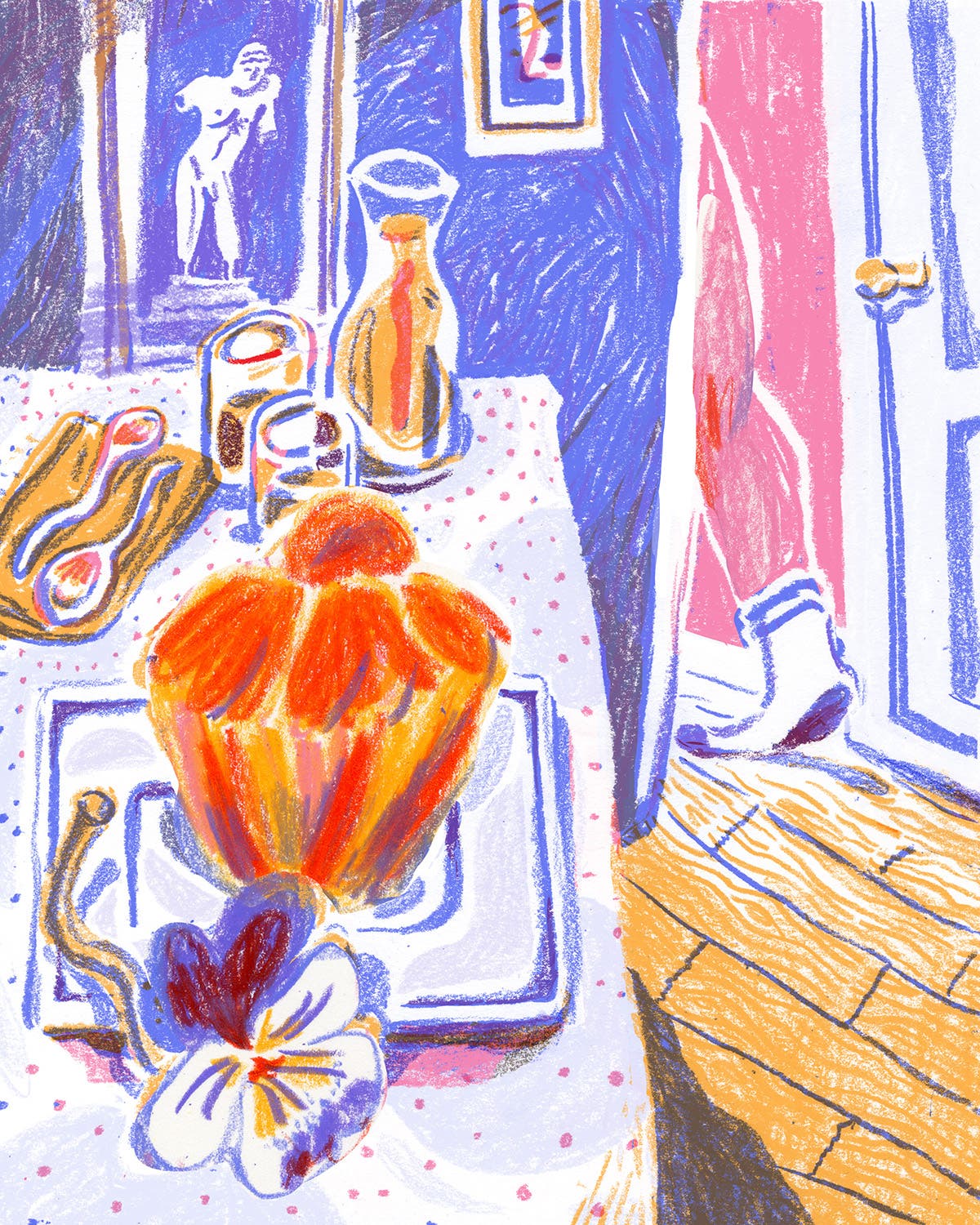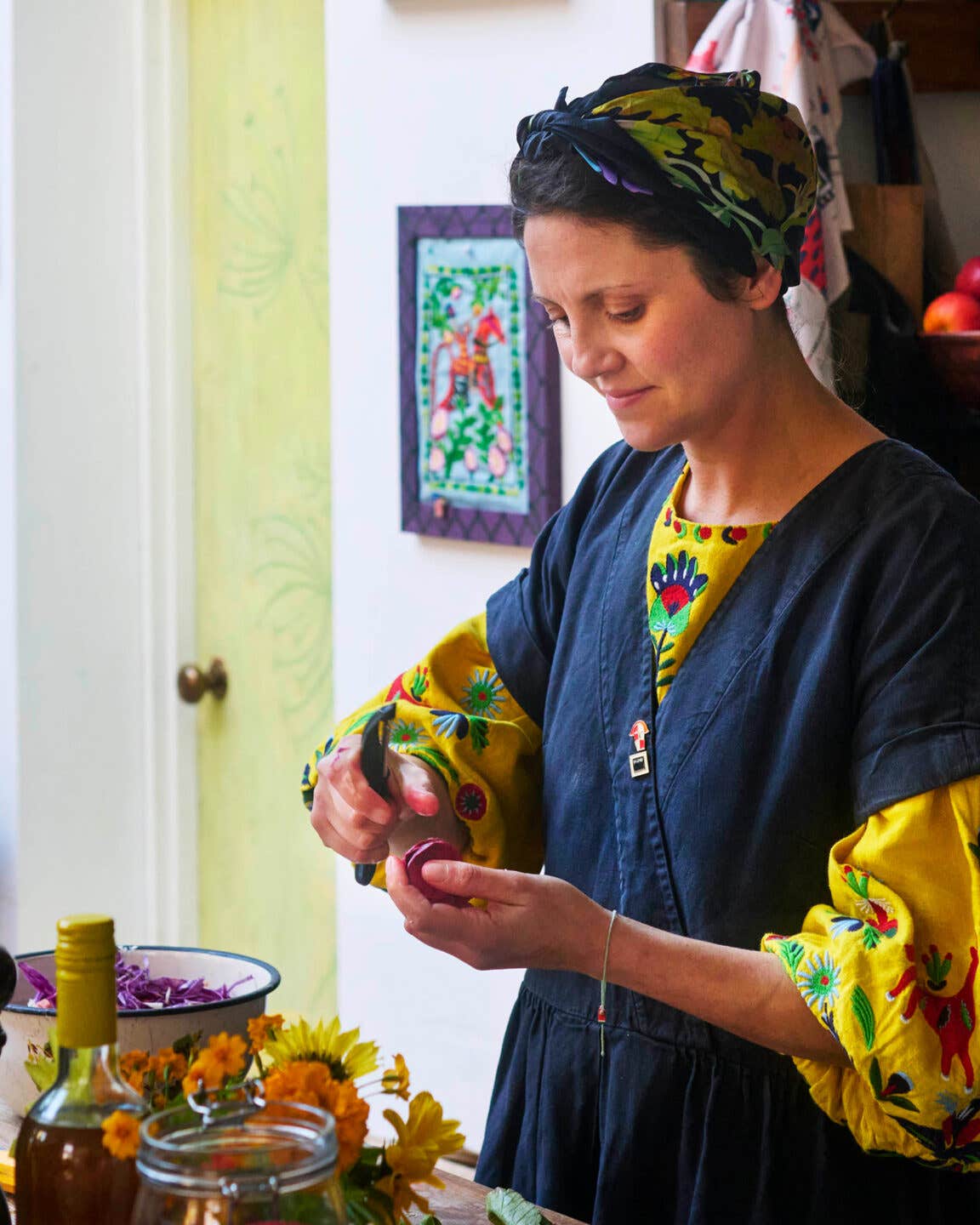
It's one thing to order the Berkshire pork entree at Dan Barber's New York City restaurant, Blue Hill. A black-clad server brings you a tender chop or loin flanked by petit pan squash or scarlet runner beans on a stark white plate. The dish is delicious—the more so, perhaps, when you consider that the bulk of the ingredients were lovingly raised on a small farm just an hour north of the restaurant.
It's quite another thing, though, to experience the pork plate at Barber's other restaurant, Blue Hill at Stone Barns, in Pocantico Hills, New York. Here, that very farm is all around you; by the time you sink into your chair in the elegant dining room, with its muted tones and rustic details, you've already driven down a winding lane past wooded enclosures where those Berkshire hogs are happily rooting around. If you've brought your boots, maybe you've trudged along the footpaths amid hills etched with rows of chard, brussels sprouts, and carrots. Then, perhaps, you glanced back at the old stone-and-timber buildings that house the restaurant and its kitchens and realized that it was time to eat.
There is no menu and few decisions to be made. A server brings a bowl of freshly harvested potatoes and butcher boards on which various vegetables are arranged—the raw materials for tonight's menu. Your server chats with you about what you want for dinner. She asks you whether you like pork, and the answer is "Of course". Soon, dishes begin to arrive, including one called Everything from the Pig: braised pork belly, fried pig's ear, apple-spiced loin sausage, seared jowls, and a velvety pate, all on a wood-and-slate plate. Maybe you've never thought of eating pig's ear before, but you know that the animal led a clean and contented life, so you tuck in. It is salty, crackly, and very, very good.
Blue Hill at Stone Barns could be called the ultimate farm-to-table restaurant. The 75-seat dining room is housed within the Stone Barns Center for Food and Agriculture, an 80-acre nonprofit farm and education center on part of a former Rockefeller estate. In that regard, the pleasure of eating Barber's food takes on an added dimension. It's the satisfaction of seeing really good ideas—about how food should be raised and prepared—being put into practice by really good cooks. For years before Stone Barns opened, in 2004, Barber was a vocal advocate for sustainable food practices; Stone Barns is where he puts his theories to work. In the restaurant's sun-dappled kitchen, the chef (who co-owns both Blue Hill restaurants with his brother David and sister-in-law Laureen; the name refers to their grandmother's New England farm) collaborates with farmers, livestock managers, and cooks to create dishes that honor the integrity of the ingredients—whether it's slender lemon-and-salt-dressed carrots, heirloom potato chips laced with sage, or a lettuce soup topped with a slow-poached farm egg. "The best flavor always runs in parallel lines with the best ethical decisions," Barber says. Stone Barns makes his case. —Rachel Wharton, a New York City-based food writer
Keep Reading
Continue to Next Story










